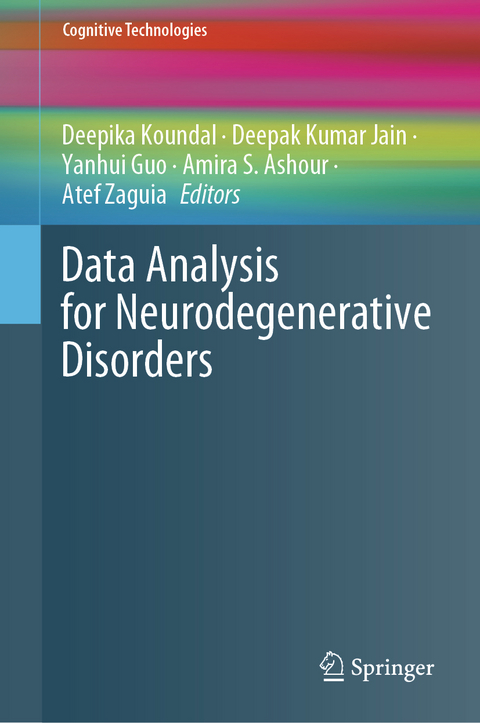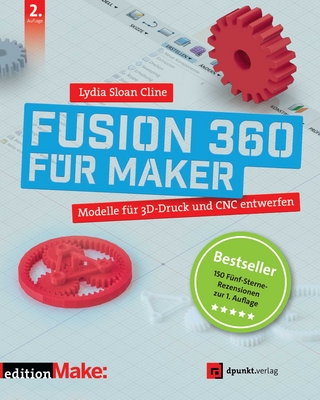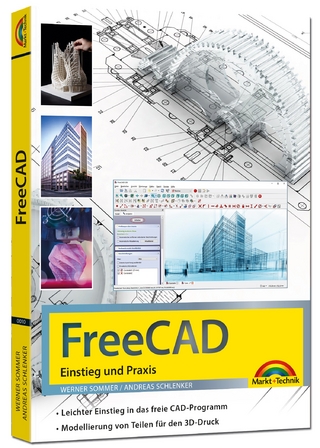
Data Analysis for Neurodegenerative Disorders
Springer Verlag, Singapore
978-981-99-2153-9 (ISBN)
This cutting-edge book highlights the analysis of medical data, together with novel procedures and challenges for handling neurological signals and images. It will help engineers, researchers and software developers to understand the concepts and different models of AI and data analysis. To help readers gain a comprehensive grasp of the subject, it focuses on three key features:
● Presents outstanding concepts and models for using AI in clinical applications involving neurological disorders, with clear descriptions of image representation, feature extraction and selection.
● Highlights a range of techniques for evaluating the performance of proposed CAD systems for the diagnosis of neurological disorders.
● Examines various signal and image processing methods for efficient decision support systems. Soft computing, machine learning and optimization algorithms are also included to improve the CAD systems used.
Deepika Koundal is currently associated with the University of Petroleum and Energy Studies, Dehradun. She received the recognition and honorary membership from Neutrosophic Science Association from University of Mexico, USA. She is also selected as Young Scientist in the 6th BRICS Conclave by NIAS-DST in 2021. She received the master’s and Ph.D. degrees in computer science & engineering from the Panjab University, Chandigarh, in 2015. She received the B.Tech. degree in computer science & engineering from Kurkushetra University, India. She is the awardee of Research Excellence Award given by Chitkara University in 2019. She has published more than 50 research articles in reputed SCI and Scopus indexed journals, conferences and two books. She is currently Guest Editor in Computers & Electrical Engineering, Internet of Things Journals (Elsevier) and IEEE Transaction of Industrial Informatics, Computational and Mathematical Methods in Medicine, MDPI Sensor, Hindawi and CMC. She is also serving as Associate Editor in Heliyon, IET Image Processing and International Journal of Computer Applications. She also has served on many technical program committees as well as organizing committees and invited to give guest lectures and tutorials in faculty development programs, international conferences and summer schools. Her areas of interest are Artificial Intelligence, Wireless Sensors, IoT, Biomedical Imaging and Signals, Soft Computing and Machine Learning/Deep Learning. She has also served as Reviewer in many repudiated journals of IEEE, Springer, Elsevier, IET, Hindawi, Wiley and Sage. Deepak Kumar Jain works as Assistant Professor at Institute of Automation, Chongqing University of Posts and Telecommunications, Chongqing, China. He received the Bachelor of Engineering degree from Rajiv Gandhi Proudyogiki Vishwavidyalaya, India, in 2010, the Master of Technology degree from the Jaypee University of Engineering and Technology, India, in 2012 andthe Ph.D. degree from the Institute of Automation, University of Chinese Academy of Sciences, Beijing, China. He was an awardee of CAS-TWAS Presidential Fellowship from 2014 to 2018. He was invited as “Foreign Experts” by Shandong Taian Administration of Foreign Expert Affairs. He has presented several papers in peer-reviewed conferences and has published numerous studies in science cited journals. His research interests include deep learning, machine learning, pattern recognition and computer vision. Yanhui Guo received his Ph.D. degree from the Department of Computer Science, Utah State University, USA. He was Research Fellow in the Department of Radiology at the University of Michigan and Assistant Professor at St. Thomas University. Dr. Guo is currently Associate Professor in the Department of Computer Science at the University of Illinois Springfield. Dr. Guo’s research area includes computer vision, machine learning, data analytics, neutrosophic set, computer-aided detection/diagnosis and computer-assisted surgery. He has published 3 books, more than 110 journal papers and 40 conference papers, completed more than 10 grant-funded research projects, has 2 patents and worked as Associate Editor of different international journals and Reviewer for top journals and conferences. Dr. Guo successfully applied neutrosophic set into image processing in 2008 and has published many research works in this area. Dr. Guo was Co-founder and Chief Scientist of MedSights Tech Inc., a high technology company focusing on a computer-assisted surgery system. Dr. Guo was awarded a University Scholar in 2019, the university system’s highest faculty honor, recognizing outstanding teaching and scholarship. Amira S. Ashour is Assistant Professor and Head of Department at Electronics and Electrical Communications Engineering Department, Faculty of Engineering, Tanta University, Egypt, since 2016. She is Head of the MICSCAS Research Laboratory (Medical Image Computing Systems and Computer-Assisted Surgery Laboratory), Faculty of Engineering, Tanta University, Egypt. She is ICT Manager of Huawei Academy, Tanta University, Egypt, during 2019 and 2020. She obtained her M.Sc. degree in electrical engineering (Enhancement of Electromagnetic Non-Destructive Evaluation Performance using Advanced Signal Processing Techniques) and Ph.D. in smart antenna from the Department of Electronics and Electrical Communications Engineering, Faculty of Engineering, Tanta University, Egypt. Her research interests include Biomedical Engineering, Medical Devices, Medical Image and Signal Processing, Medical Imaging, Ablation Therapy, Machine Learning, Optimization, Smart Antenna, Target Tracking and Direction of Arrival Estimation. She is Co-editor of Advances in Ubiquitous Sensing Applications for Healthcare, book series, Elsevier. She is Editorial Board Member of several reputable journals. She published 120 journal papers and conference proceedings and edited/authored about 20 books (Elsevier/Springer). Atef Zaguia received the bachelor’s degree in computer engineering from the University of Ottawa and the M.S. and Ph.D. degrees in computer science from the École de Téchnologie Supérieure (E.T.S.), University of Quebec, Montreal, Canada. For one year, he held Postdoctoral position at E.T.S., University of Quebec. He was working on developing application for newborn cry-based diagnosis system with the integration of interaction context, supported by the Bill and Melinda Gates Foundation. He is currently Associate Professor at the College of Computers and Information Technology, Taif University, Saudi Arabia. He has published papers in national and international conferences and journals. His research interests include multimodal systems, pervasive and ubiquitous computing, IoT, AI and context-aware systems. He was Program Committee Member of the Tenth International Conference on Mobile UbiquitousComputing, Systems, Services and Technologies (UBICOMM 2016), Venice, Italy.
Chapter 1. Introduction to neurodegenerative disorders.- Chapter 2. Neurodegenerative Disorders and available therapies: A review.- Chapter 3. Role of peptides in Neurodegenerative disorders by using Machine Learning techniques.- Chapter 4. Deep learning based classification of neurodegenerative disorders.- Chapter 5. EEG Processing and Machine Learning based Categorization of Epilepsy.- Chapter 6. An Automatic Edge-Region Based Level set Method for MRI Brain Image Segmentation.- Chapter 7. Multimodal Medical Image Fusion for identification of Neurodegenerative disorders Using Neutrosophic CNN Technique.- Chapter 8. Automated EEG temporal lobe signal processing for diagnosis of Alzheimer disease.- Chapter 9. Alzheimer Disease Identification based on the EEG Processing and Machine Learning.- Chapter 10. Deep Learning Models for Automatic Classification and Prediction of Alzheimer’s Disease.- Chapter 11. Machine learning models for Alzheimer Disease Detection using medical images.- Chapter 12. Transfer learning for precise classification of Parkinson disease from EEG signals.- Chapter 13. Analysis of Convolutional Neural Network Based Architecture for Parkinson.- Chapter 14. Challenges and Possible research directions.
| Erscheinungsdatum | 03.06.2023 |
|---|---|
| Reihe/Serie | Cognitive Technologies |
| Zusatzinfo | 68 Illustrations, color; 11 Illustrations, black and white; VIII, 267 p. 79 illus., 68 illus. in color. |
| Verlagsort | Singapore |
| Sprache | englisch |
| Maße | 155 x 235 mm |
| Themenwelt | Informatik ► Grafik / Design ► Digitale Bildverarbeitung |
| Informatik ► Theorie / Studium ► Künstliche Intelligenz / Robotik | |
| Medizin / Pharmazie | |
| Technik ► Maschinenbau | |
| Schlagworte | Artificial Intelligence • Big data analysis • computational methods • Computer-aided Diagnosis • Disease diagnosis • gait analysis • handwriting analysis • Machine Learning and Deep Learning • Medical Data Analysis • multimodal approaches • neurodegenerative disorders • neuroimaging • Speech Analysis |
| ISBN-10 | 981-99-2153-8 / 9819921538 |
| ISBN-13 | 978-981-99-2153-9 / 9789819921539 |
| Zustand | Neuware |
| Haben Sie eine Frage zum Produkt? |
aus dem Bereich


